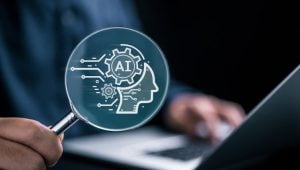Revolutionizing Workforce Management: HR Industry Insights
 Publié le 16 April 2024
Publié le 16 April 2024
Using the latest HR industry insights can be very effective for revolutionizing workforce management.
The workforce management landscape is undergoing rapid transformation, driven by technological advances, generational shifts, and the changing nature of work itself.
Human resources (HR) is at the epicenter of this revolution, needing to adapt strategies to attract, manage, and optimize the best talent for the job. Several key trends are reshaping HR best practices and revolutionizing workforce management.
Workforce demographics now span up to five generations, calling for tailored policies catering to diverse needs and preferences. Remote and flexible work models are becoming mainstream, enabled by mobile technology.
This grants employees more autonomy but requires new performance management approaches focused on analyzing outcomes over physical oversight.
Data and analytics are enabling more informed people’s decisions based on insights versus intuition. Powerful HRIS systems integrate fragmented systems into a single view of the employee lifecycle.
Machine learning and AI are automating administrative and transactional tasks, allowing HR to focus on more strategic priorities. Virtual onboarding, personalized learning platforms and predictive retention tools exemplify emerging intelligent HR capabilities.
As technology reshapes the workforce, leading HR teams adopt digital transformation and equip themselves with the skills and culture needed to adapt to these changes.
Companies failing to modernize talent management risk disengaged employees, loss of top performers, and competitive disadvantages.
The Current State of Workforce Management
In the rapidly evolving HR industry trends, workforce management is significantly transforming.
Workforce innovation and adopting advanced human resource management solutions have become pivotal in today’s corporate world.
So, what’s shaping this transformation? Let’s break it down:
- Workforce Transformation: The traditional 9-to-5 office model is giving way to flexible and remote work arrangements. Companies are realizing the benefits of a more agile workforce, which enhances productivity and work-life balance.
- Technology Integration: HR management portals and cutting-edge software solutions are streamlining HR processes. From recruitment to payroll, technology is simplifying tasks and enabling HR professionals to focus on strategic initiatives.
- Data-Driven Insights: HR teams are harnessing data analytics to make informed decisions. This data-driven approach helps in talent acquisition, retention strategies, and performance evaluation.
- Workforce Well-Being: Employee well-being is gaining prominence. Companies are investing in wellness programs and fostering a healthy work environment to draw and retain top talent.
- Diversity and Inclusion: Companies are emphasizing diversity, equity, and inclusion initiatives, recognizing that a diverse workforce brings fresh perspectives and innovation.
Technological Advancements in HR
Technological advancements have brought about a paradigm shift in the ever-evolving HR landscape. These innovations are not just about efficiency but also about shaping the strategic direction of HR industry insights and trends. Here’s a closer look:

- Workforce Management Solutions: Modern HR is all about streamlined processes. Workforce management solutions are like your digital HR assistants, automating tasks such as time tracking, scheduling, and leave management.
- Workforce Solutions Platform: Imagine having all HR functions in one place. Workforce solutions platforms do just that, offering a centralized hub for recruitment, performance management, and employee data.
- Strategic Workforce Management: Technology enables HR professionals to become more strategic. With data analytics, they can identify skill gaps, predict turnover, and plan for future workforce needs as the organization continues to evolve.
- HR Industry Insights and Trends: Staying up-to-date with HR industry insights and trends is vital. Technology allows HR to gather real-time data, informing them about market changes and competition.
These advancements are revolutionizing HR, making it more agile and responsive. As companies embrace these tools, they’re not just improving HR processes; they’re gaining a competitive edge.
Employee-Centric Approaches
Today, employee-centric approaches are taking center stage, transforming how organizations operate. Let’s break down what this means and why it’s essential:
- HR Transformation Initiatives: Companies are redefining HR practices to focus on their employees. This shift is driven by the understanding that a satisfied & engaged workforce leads to better productivity and retention.
- Innovative HR Practices: Forward-thinking companies are adopting innovative HR practices. These include personalized career development plans, mentorship programs, and continuous feedback mechanisms.
- Empower Tech Workers: With technology becoming ubiquitous, empowering tech-savvy employees is vital. They can help drive digital transformation within the organization and stay competitive.
- Workforce Solutions Platform: Employee-centricity is supported by workforce solutions platforms. These platforms offer employees easy access to HR resources, self-service options, and real-time communication with HR professionals.
- Employee Management Strategies: The traditional top-down management approach is evolving into collaborative and inclusive strategies. Employees are given more autonomy, fostering a sense of ownership and accountability.
Remote Work and Hybrid Models
When it comes to HR industry insights, how we work has undergone a substantial transformation, largely propelled by the rise of remote work and the emergence of hybrid models. Here are the key aspects of workforce management:
- Remote Work: Working from anywhere has gained immense popularity. Employees can now collaborate effectively from the comfort of their homes or other locations through remote work. Technological advancements and a growing need for flexibility have accelerated this trend, and remote working remains very popular.
- Hybrid Models: Many organizations are adopting hybrid work models, enabling employees to split their time between the office and remote locations. This approach combines the benefits of in-person collaboration with the flexibility of remote work.
- HR Industry Insights: HR professionals are at the forefront of managing these changes. They are tasked with ensuring that remote and hybrid work arrangements are seamless, productive, and aligned with organizational goals.
- Challenges and Opportunities: While remote work offers greater flexibility, it also presents challenges regarding employee engagement, communication, and maintaining company culture. HR leaders are exploring innovative solutions to address these challenges and maximize the advantages of remote and hybrid work.
- Future of Work: Remote work and hybrid models are here to stay. They have not only revolutionized workforce management but have also reshaped the HR industry insights landscape. Companies that can adapt to these changes effectively are better positioned for success in the evolving world of work.
Diversity, Equity, and Inclusion (DEI) Initiatives
When it comes to HR industry insights, Diversity, Equity, and Inclusion (DEI) initiatives stand as pillars of modern workforce management.
Let’s understand their paramount importance and HR’s pivotal role in fostering diversity and inclusion:
1. Importance of DEI in Modern Workforce Management:
DEI initiatives are more than a buzzword; they are essential components of a thriving workplace. They foster a culture where differences are celebrated, and every employee feels valued.
DEI initiatives not only align with ethical principles but also make good business sense. Companies that prioritize diversity and inclusion tend to:
- Enhance Innovation: Diverse teams bring a variety of ideas and perspective to the table, sparking innovation and creativity
- Attract Top Talent: A commitment to DEI attracts a wider pool of talent, including individuals from underrepresented groups.
- Improve Employee Engagement: When employees feel included and see themselves reflected in the organization, they are more engaged and committed.
- Enhance Reputation: Companies that champion DEI are often viewed favorably by customers, partners, and investors.
2. Role of HR in Promoting Diversity and Inclusion
HR professionals are the driving force behind the DEI initiatives within organizations. They are responsible for:
- Recruitment: Ensuring that recruitment processes are bias-free and focus on attracting diverse candidates.
- Training and Development: Implementing training programs that promote cultural awareness and inclusivity.
- Policy Development: Creating policies and practices that support diversity, equity, and inclusion.
- Promoting Inclusive Leadership: Encouraging leaders to champion DEI and lead by example.
Data-Driven Decision-Making
In the constantly evolving landscape of HR industry, data-driven decision-making stands out as a powerful tool in revolutionizing workforce management, particularly in the context of remote work and hybrid models.

With the advent of technology and the increasing adoption of remote work and hybrid models, organizations are generating vast amounts of data related to their workforce.
This data includes everything from employee productivity metrics to engagement surveys and performance evaluations.
Leveraging this wealth of data has become instrumental in making informed and strategic decisions.
The importance of data-driven decision-making in HR industry insights and workforce management can be summarized as follows:
- Improved Resource Allocation: Data analysis allows HR professionals to identify where resources are best allocated. Whether it’s optimizing remote work setups or adjusting staffing levels, data helps ensure efficient resource utilization.
- Performance Evaluation: Data-driven metrics provide an objective assessment of employee performance, helping HR teams identify areas for improvement and recognize high-performing individuals.
- Talent Acquisition and Retention: Analyzing data can reveal trends in employee turnover and identify the factors contributing to retention. This insight allows HR to tailor strategies for talent acquisition and retention.
- Strategic Planning: Data empowers HR to align workforce management strategies with the organization’s long-term goals, adapting to changing industry trends and market demands.
- Employee Well-Being: Monitoring employee well-being through data-driven surveys and feedback mechanisms helps HR create a more supportive and inclusive work environment.
While learning HR industry insights, know that harnessing the power of data-driven decision-making is crucial.
It enables HR professionals to navigate the challenges and opportunities presented by remote work and hybrid models effectively.
Future Trends in Workforce Management in HR
The future of workforce management in HR will be shaped by emerging technologies, evolving workplace models, and changing workforce demographics. Some key trends include:

- Increased adoption of AI and automation – Tasks like payroll, recruiting, and benefits administration will become increasingly automated, allowing HR to focus on more strategic priorities.
- More flexible work arrangements – Remote and hybrid work models will continue growing in popularity. HR needs to develop flexible policies while maintaining engagement and collaboration.
- Focus on the employee experience – With the war for talent, HR will need to create personalized employee experiences that support recruitment, productivity, and retention.
- Data analytics for strategic insights – HR will rely more heavily on workforce analytics to predict needs, identify retention risks, and model different scenarios.
- Reskilling programs – As jobs rapidly evolve, ongoing learning opportunities and internal mobility will be key to upskilling employees.
- Diversity, equity and inclusion – There will be greater emphasis on improving DEI through hiring practices, awareness training, mentoring programs, and more.
By leveraging technology and data-driven insights, HR can revolutionize workforce management to build adaptable, high-performing workforces.
Conclusion
The workplace is changing at a rapid pace, compelling HR leaders to revolutionize their approach to workforce management. While technology is disrupting many elements of work, the human element remains critical.
As we advance, the HR industry must balance three key priorities: leveraging the efficiency and insights from AI and automation, implementing flexible models that meet both employee and organizational needs, and doubling down on the employee experience through personalized engagement, development programs, and inclusive policies that support wellbeing.
Additionally, with access to robust workforce data, HR will be well-positioned to make strategic decisions that drive productivity, innovation, and performance. However, analytics should inform — not dictate — an approach that puts people first.
By being adaptable, creative, and compassionate, HR can lead the workforce revolution in a direction that benefits employees and businesses alike. The future presents challenges but also tremendous opportunities to learn, grow, and transform work for the better.







